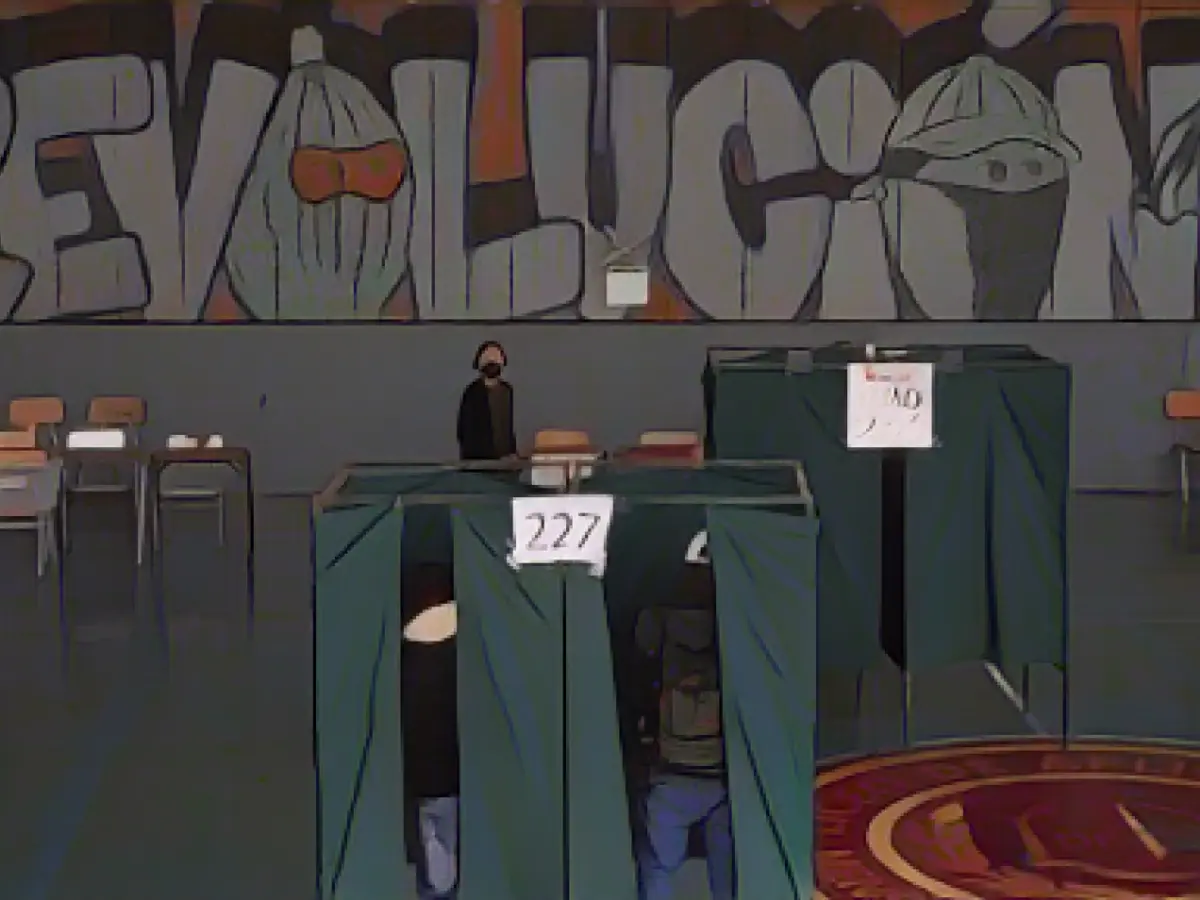Chileans Cast Their Ballots in Referendum over New Constitution
In the polls on Sunday, Chilean voters had the opportunity to shape the future of their nation by deciding whether to replace their existing constitution - a relic of the military dictatorship era - with a new one. This was the country's second attempt at crafting a fresh constitution, as the previous proposal was rejected by a considerable margin last year. The latest vote featured a fierce clash between conservative and progressive groups, with the former advocating for approval of the Constitutional Council's draft, and the latter urging voters to reject it.
The Constitutional Council, dominated by delegates from right-wing parties, was heavily criticized for presenting a new constitution that was perceived as a step backward regarding various rights. The proposed draft, for example, raised concerns about potential restrictions on the right to abortion, the enabling of immediate deportation of foreigners, and favored tax advantages for homeowners.
The Draft Constitution
The revised constitution included several key points and controversies, such as:
- Indigenous Rights: The proposed draft aimed to increase indigenous rights, especially those of the Mapuche people, by defining Chile as a "plurinational state." This was intended to grant greater political representation and autonomy to indigenous communities, making up around 12% of the population.
- Decentralization and Power Shift: The new constitution proposed to decentralize power, shifting more authority to rural areas, potentially lessening the influence of mining companies and other corporate interests.
- Independent Judiciary: It called for the creation of independent judiciary systems for indigenous peoples, allowing them to address legal issues relating to their rights and lands independently.
- Veto Power: The proposal included provisions granting indigenous communities veto power over projects, laws, and acts concerning their lands and cultural practices.
However, the draft was not without controversy:
- Overrepresentation Concerns: Critics argued that the proposed overrepresentation of Mapuche interests in Congress could result in conflict and undermine the rights of other groups.
- Definition of Plurinational State: The term "plurinational state" was a source of contention, with many questioning its implications and legitimacy.
- Private Property Rights: Farmers and landowners were concerned that the proposed constitution would infringe on their private property rights, potentially leading to similar land seizures as in the 1970s.
- Economic Impact: The proposal was seen as economically harmful to mining companies and other businesses, which could have significant implications for Chile.
- Consultation Process: The proposal's clause requiring proper consultation with indigenous groups before implementing projects or legislation was questioned for its effectiveness and fairness.
The Vote and Aftermath
Regardless of the outcome of the referendum, the failed attempt last year to approve a progressive constitution demonstrated that many Chileans were not yet prepared for significant changes like granting indigenous communities the right to self-determination or ensuring a 50% quota for women in all state bodies. In the end, the referendum results revealed that the majority of voters rejected the proposal.
The proposed new constitution in Chile was a highly contentious and complex issue, reflecting deep-seated societal and economic tensions. Its rejection highlights the ongoing challenges in addressing indigenous rights and decentralization in the country.
--
Sources
- Stern.de Website -
- Enrichment Data on proposed new constitution (binary status not included)




